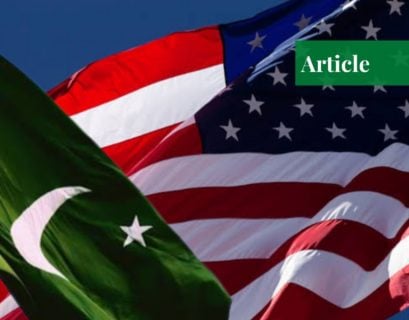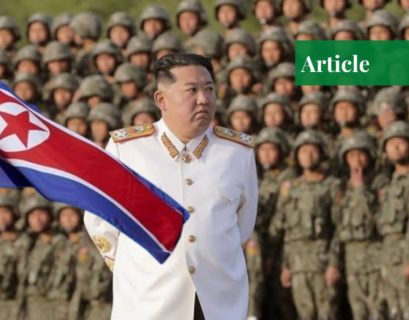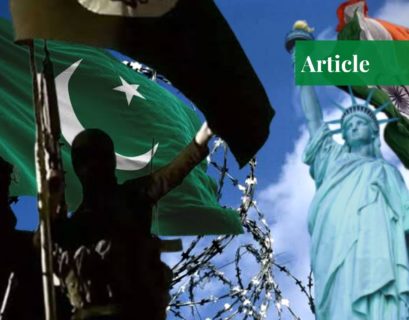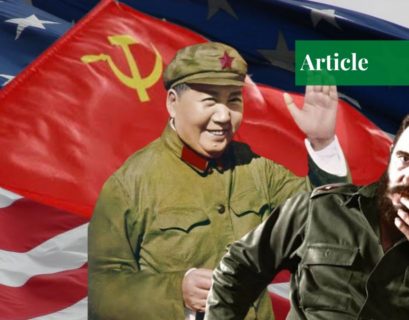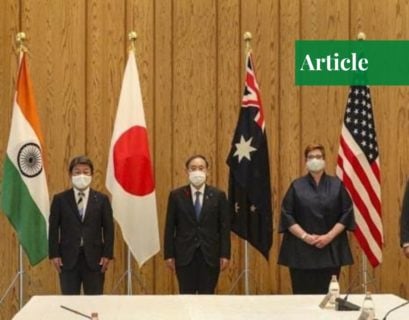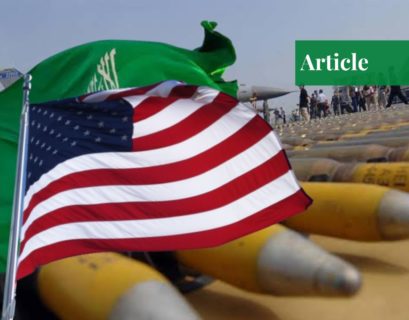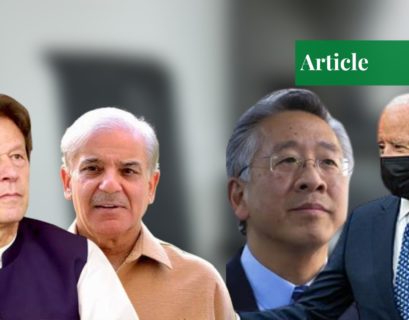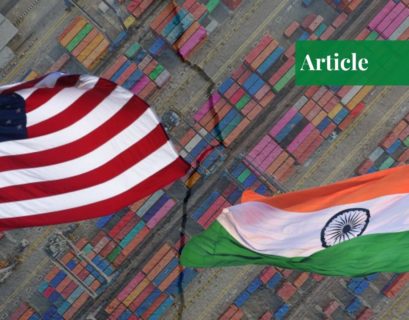The Oxford Handbook of Indian Foreign Policy
The Oxford Handbook of Indian Foreign Policy is a comprehensive book with 50 essays about India’s foreign relations since the British Raj. Both the authors and editors of this book are prominent and leading experts in India’s international relations.
Suisse Secrets: Disclosing Financial Information
In this recent instalment of financial investigations, the Suisse Secrets has revealed the details of over 30,000 clients of Credit Suisse. Kashaf Imran lists some of the prominent people who have maintained accounts at this major Swiss bank.
Pakistan and America – Relations Strained by US Involvement
Since Pakistan’s independence in 1947, America has maintained a continuous presence in the state’s political affairs. Iqra Mumtaz notes that throughout the history of Pakistan-US relations, the US’s policies towards Pakistan have revolved around engagement, containment, and the “carrots or sticks” approach. Yet, the American support of subservient regimes in Pakistan has remained constant.
Kim Jong Un of North Korea: 10 Years in Power
15th April 2022 marked an auspicious day in the Democratic People’s Republic of Korea. In 2012, Kim Jong Un became the head of state (also known as the “Supreme Leader” i.e. the head of the Workers Party, the state, and the military) after the passing of his father, Kim Jong-il. In this article, Alsa Nishat Ahmad analyzes the current Supreme Leader’s eventful 10-year regime.
Digging Up the History of Saudi Arabia
In this very detailed and clear piece, Mohammad Mudasar Laghari connects the past and present of Saudi Arabia, a kingdom shrouded in mysteries. Discover the origins of the name of the Kingdom, the roots of Wahhabism, the finding of oil, and the army of flies, among others.
The Instability in Pakistan & Afghanistan: How the US & India Benefit the Most
Since the Taliban takeover, the situation in Afghanistan has continued to deteriorate to the point where the country is not only facing a humanitarian crisis but also an insurgency in the shape of the Islamic State of Khorasan Province (ISKP). Moreover, Afghanistan’s neighbor – Pakistan – has experienced an increase in terrorist attacks perpetrated by the Tehreek-e-Taliban Pakistan (TTP). Amid the political crisis in Pakistan, these attacks have soured Pak-Afghan relations. The author, Sarmad Ishfaq, notes that the continued instability in Pakistan and Afghanistan, and their strained relations, are benefitting India and the United States the most.
China’s BRI vs the US’s FOIP: Foreign Policy Opportunities and Challenges for Malaysia
Contemporary publications identify Indo-Pacific as a hub of great power politics. The great powers, China and the US, are striving their best to enhance their sphere of influence across the region through BRI and FOIP respectively. These two strategies bring some opportunities along with certain challenges for ASEAN member states. In this research paper, the structural realism lens is used to analyze the foreign policy situation of Malaysia under these circumstances.
Communism: The Constructed ‘Red Scare’
Communism is a political ideology that started gaining momentum in the 1920s. It was a champion for the East and had started to encroach on the West as it started to become popular amongst the lower class. To deal with such a broad and intangible threat, the Western powers (mainly America) built a negative and dangerous aura around it and used it to garner public support for themselves. This narrative building was done through securitization of the term and can be visualized in the public speeches of American Presidents of the Cold War era.
The Critical Security Issues of Pakistan: Terrorism, Blasphemy & Sectarian Violence
Despite several years of relative calm and stability, the spectre of terrorism is rearing its head in Pakistan again. With dozens killed and several more wounded in just the past few months, many fear that Pakistan is going down a dark path back to its past, a past riddled with too many bullet holes. The Declaration of the United States’ War on Terror in the aftermath of the 9/11 bombings has resulted in untold carnage and death, most particularly in the countries of Iraq, Afghanistan, and Pakistan.
The US’s Purchase of Alaska
The United States of America purchased Alaska from Russia in 1867 and made it one of its fifty states in 1959. It is a very important maritime strategic asset of the US. The author, Summaiyya Qureshi, looks at how this tender took place.
The Highs and Lows of Pak-US Relations: From the Cold War to Now
The relations between Pakistan and the United States have always been based upon national interests and America’s dominant power position. While analyzing the history of this relationship, Aamina Binte Khurram argues that since the 1950s, the US has done its best to influence Pakistan’s foreign and domestic policies and pressurized the state to do its bidding in the South Asian region. The United States has leveraged Pakistan’s weaker position, and coerced Pakistani leaders on many occasions. Hence, it comes as no surprise that the Pakistan-US relationship has been marred with periods of hostility whenever the interests of the two states have diverged.
Destabilizing QUAD: One Member at a Time
The Quadrilateral Security Dialogue (QUAD), an alliance between the US, India, Australia, and Japan, reemerged in the international arena in 2017 as an effort to keep China in check in the Indo-Pacific region. The common interest of countering China bounds these states together but according to the author, Dr. Kankana Debnath, the visit of the Russian and Chinese foreign ministers to New Delhi has threatened the internal dynamics of QUAD.
US Arms Sales to Saudi Arabia
The arms trade between the West and the Middle East has been a long-standing factor in the relations between the two. Within the Middle Eastern region, the Kingdom of Saudi Arabia has risen as the largest arms importer, mainly relying on the US for weapons. The author, Rooha Javed, notes that between 2015 and 2020, the US pledged to sell weapons worth $64.1 billion to Riyadh. Moreover, despite the criticism of Saudi Arabia’s involvement in the war in Yemen, the US has continued the arms supply to the kingdom.
“Gold Russ-h”: The Russian Ruble vs USD
Facing enormous sanctions and economic setbacks, the Russian state is grasping at straws as it attempts to keep its economy afloat. Pegging the ruble to gold was a last-ditch attempt by Russia, but it seems to have struck gold. Or has it? The author, Muhammad Mustafa Ahmed Khan, explains the value and current state of gold, the dollar, and the ruble in the global financial markets following the sanctions on Russia.
The US-backed Regime Change in Pakistan
The United States has freely been using regime changes as tools for subjugation. If unable to “convince” a leader to comply, the US simply has him/her removed from power. Ironically, the US Senate had to formally pass an “assassination ban” on US citizens/officials since CIA/US assassinations and coups in states run by “unfavorable” governments were becoming too frequent. The author, Mir Adnan Aziz, argues that for the US, Pakistan’s former prime minister, Imran Khan, represented one such unfavorable government. Though Pakistan is not a stranger to America’s interventionist policies, the recent regime change in Pakistan has revealed the true extent of covert American networking in the state.
The Space Race in the 21st Century
Space was an important front for war in the last century and will be just as significant in this century. Space became a zone of conflict during the Space Race in the Cold War. In present times, the space market has grown complex and diverse, with the private and commercial sectors participating more in this realm. The author, Iqra Mumtaz, believes that space hegemony will play an important role in terms of future military and political influence.
India and the US: A History of Strained Relations
Ever since it gained independence in 1947, the Republic of India has had strained ties with the United States, a trend that continues today. Despite instances of co-operation on issues like international counter-terrorism, trade, and economic development, the two largest democracies in the world have often diverged on questions of strategic importance, a divergence that has been exacerbated and brought into the spotlight by the recent Russian invasion of Ukraine, which is now continuing into its second month.


